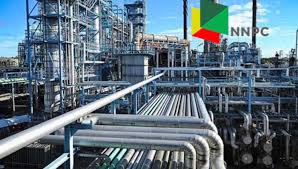By Kingston Magare
Top opposition politician and former Anambra State governor, Peter Obi said reviving the Port Harcourt refinery and also making moves to fix the Warri and Kaduna refineries was a right step in the right direction by the Nigeria National Petroleum Company Limited.
Writing on his X social media page Wednesday, Obi acknowledged that with coming on stream of the moribund refineries, Nigeria’s economy is on the road to recovery.
“I wish to congratulate the Nigerian National Petroleum Corporation (NNPC) for fulfilling the long-standing promise of revamping the old Port Harcourt refinery,” said Obi who was the Labour Party presidential candidate in the 2023 elections
“The refinery, which comes on stream boasts an installed production capacity of 60,000 barrels of crude oil per day. Approximately 200 trucks are expected to load products daily from the refinery.
“Nigerians now await the corresponding impact and benefits on pump prices and the overall economy.
“Additionally, news of the Kaduna refinery’s revival is promising, as it is expected to boost productivity, improve transportation, and alleviate economic burdens across the country.
“While we acknowledge these achievements as a step in the right direction, it is crucial to emphasize the importance of transparency in the operations of the NNPC.
“Nigerians deserve clarity and accountability regarding the management of the nation’s vital oil resources, ensuring that the benefits of increased refining capacity reach every Nigerian and that the gains are used to support long-term development. A new Nigeria is Possible!”
The Port Harcourt Refining Company Limited, PHRC, on Tuesday began the first truck-out of petroleum products in view of the re-streaming of the rehabilitated facility.
The refinery is producing the following daily outputs : Straight-Run Gasoline (Naphtha): Blended into 1.4 million litres of Premium Motor Spirit (PMS or petrol), Kerosene: 900,000 litres, Automotive Gas Oil (AGO or Diesel): 1.5 million litres.
Others are Low Pour Fuel Oil, LPFO: 2.1 million litres and Liquefied Petroleum Gas, LPG, additional volumes.


